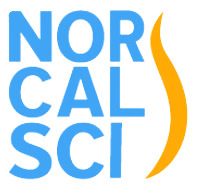THE BIG IDEA: exclusive update on the Epidural Stimulation Clinical Trials For Spinal Cord Injury coming Sept. 30
Dr. Susan Harkema
Dr. Susan Harkema, the renowned researcher who has been championing the use of Epidural Stimulation to improve function in those with a spinal cord injury, will be part of an exclusive presentation on Wed., Sept. 30th at 5 p.m. PT that would provide an update on the clinical trials she’s currently working on, the future applications of Epidural Stimulation and answer questions from the audience. Susan has been a leading researcher in THE BIG IDEA clinical trials that seek to use Epidural Stimulation that would apply a continuous electrical current — at varying frequencies and intensities — to specific locations on the lower part of the spinal cord and prompt movement in the legs and walking ability.
This session is presented by NorCal SCI as part of its “Virtual is the New Reality Series” and the Central Coast of California Chapter of the United Spinal Association. To attend this free event, you must register in advance HERE.
To describe these trials, a stimulator is placed inside the body and wired to the spinal cord. The stimulator is controlled by a remote about the size of a smartphone. When the stimulator is on, commands such as "move my right leg" result in movement. In a way, the electrical pulses are "awakening" the nerve cells in the spinal cord.
Susan will provide an update on the clinical trials and also take your questions as part of this exclusive hour-long presentation. She is a leading researcher in the field of neurological rehabilitation, and holds the positions of Professor in the Department of Neurological Surgery at the UofL, Rehabilitation Research Director at the Kentucky Spinal Cord Injury Research Center, and Director of Research at FRNC. She is the Owsley B. Frazier Rehabilitation Chair in Neurological Surgery at UofL. Dr. Harkema is currently the National Director of the NRN, a cooperative network of cutting-edge rehabilitation centers designed to provide and develop therapies to promote functional recovery and improve the overall health of people living with paralysis by translating scientific advances into effective, activity-based rehabilitation treatments. She holds a Ph.D. in physiology.

